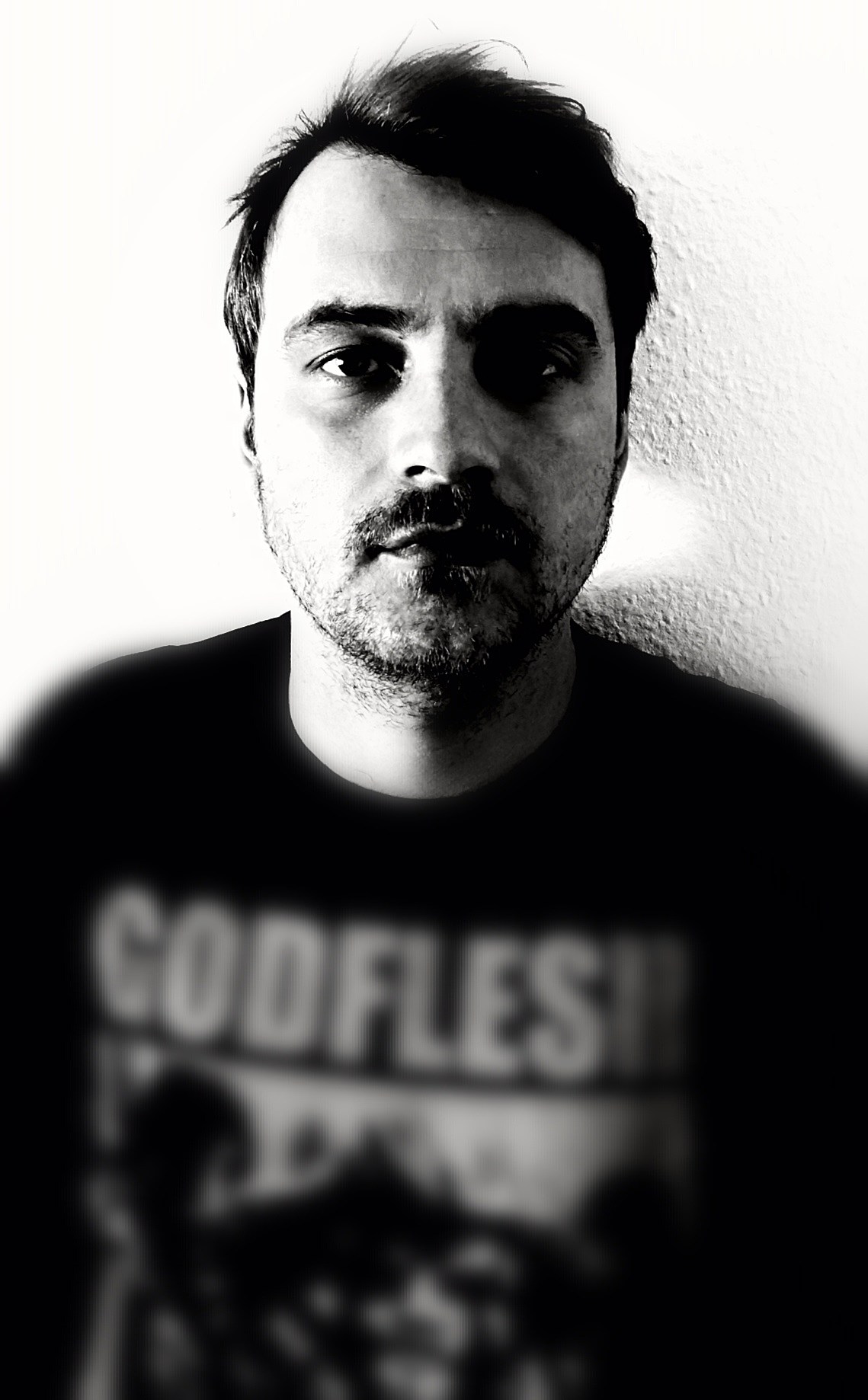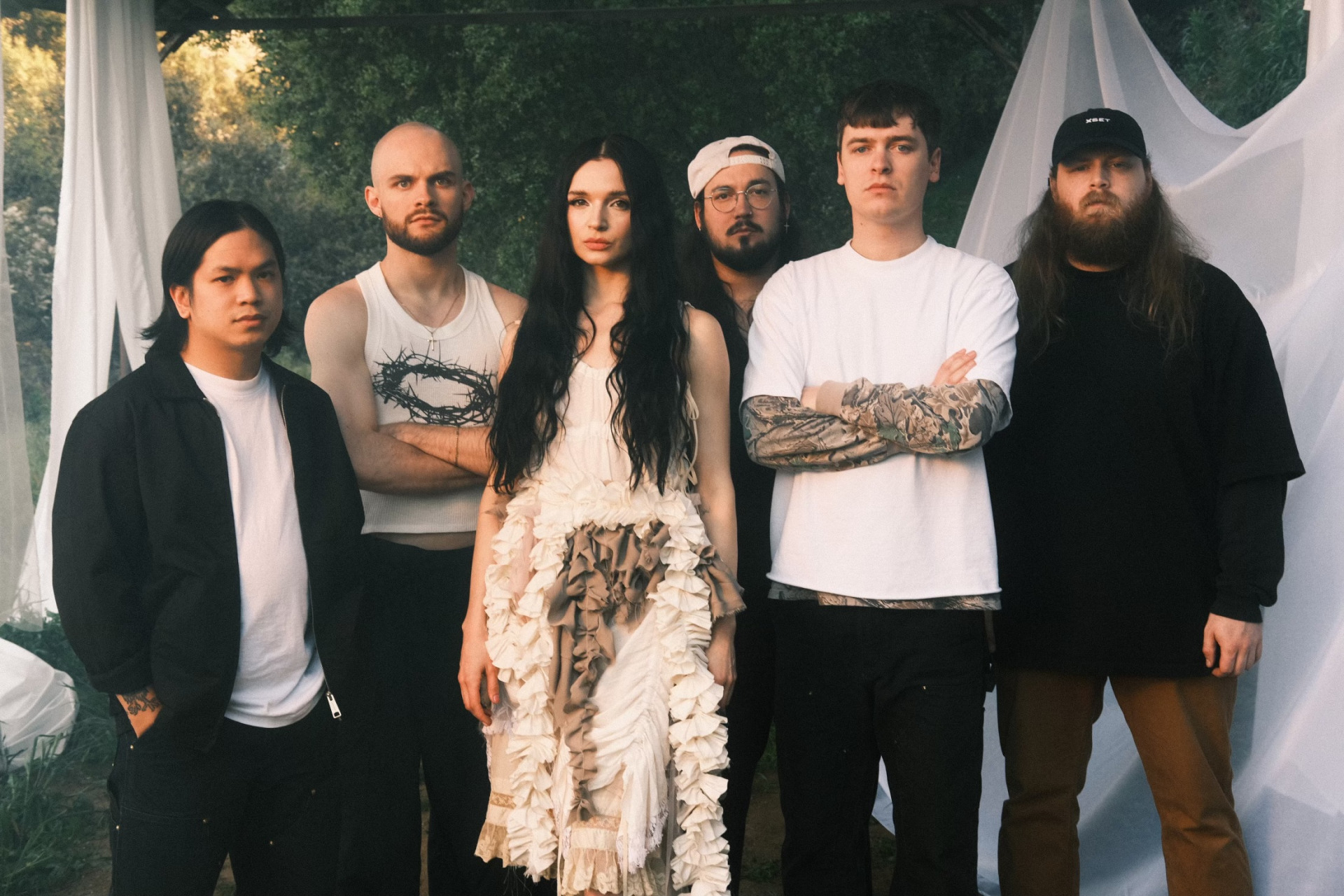
Radical Sorrow: Till Seidemann Talks Depressive Black Metal Project Wehmut

Wehmut is a portal to my teenage years. I was super, super into the “depressive black metal” thing which was going on, and so bands like Hypothermia, Trist, and Lifelover were frequent listens. Wehmut, however, seemed different. Though he made sad and desperate music like his peers, solo musician Till Seidemann’s efforts seemed atypical, if more refined when compared to the harsh minimalism which surrounded him. On his sole, eponymous full-length, Seidemann wove a complex, silken tapestry of arpeggiated chords, melodic, lyrical bass, and sluggish percussion to create something unique within the “depressive/suicidal black metal” (otherwise known as DSBM) glut.
But Wehmut quickly disappeared, leaving behind this one album as its sole effort.
“After the first Wehmut album was released, I somehow parted ways with black metal,” says Seidemann in his first interview about the Wehmut project. Black metal, to him, was too closed-minded, too focused on the idea of “true” vs “untrue.” It was a place where focus was put too much on the old guard, and so young musicians like himself had too much to prove. He became disenfranchised with the genre and left.
After years of delving into more experimental music, Seidemann then founded space rock band Mondstaubmaschine. In their lengthy, jam-oriented music, I can almost hear Wehmut’s arpeggiated guitar work.
And yet, Seidemann felt a deeper connection to the Wehmut name. As time went on, he felt closer to the Wehmut name and felt it was indistinguishable from his creative self. Between this and some extenuating circumstances, plus a little help from his old black metal collection, the Wehmut project was reborn, but as something different.
“[F]or me it is clear: I don’t want to and cannot reproduce this sound which was at that time the result of a complete uncontrolled happening and — if you want so — many mistakes (which is actually not a bad thing),” says Seidemann. He would rather his music be despondent and radical, not unlike the grand transformations of bands like Manes or Ulver. A brief clip of a Coil cover found on the Wehmut Facebook dictates that this change will, indeed, be something to behold.
In his first interview as Wehmut, which can be read below, Till Seidemann explores the project’s past, present, and future
…
…
You discuss it somewhat in your Bandcamp bio without going into much detail: what made you decide to resurrect the Wehmut project after 12 years?
There are various reasons behind the decision to resurrect Wehmut.
After the first Wehmut album was released, I somehow parted ways with black metal, as I felt that many aspects of this genre and the people that were into it were so narrow-minded. For example this complete ideological belief, that you can only be part of the whole thing, if you swear again and again on this mysterious true spirit of black metal, that is supposedly personified by the elder ones in the scene. So the younger ones have to prove again and again, that they really mean what they are listening to (and I’m sure they would be better off, if they did not).
At least that was my feeling at this time and there were so many other interesting styles of music and bands that created such a dense and atmospheric sound without referring to the common ideologies you find in black metal.
But as the years went by, I felt that Wehmut was getting more and more personal for me. The more distance I got, the more I could see and maybe also accept this project and its sound as a part of myself and also as a medium of self expression. I also started listening to some black metal bands again, but much more selective than I did in my adolescence.
So there were several points in time when I thought about resurrecting the project, as I always loved the possibilities of a “one-man-band”, having artistic license and total control over the product at the same time. But somehow the motivation never was strong enough and probably the time was too stressful, to really get into a working process.
So the final reason why I eventually resurrected Wehmut is quite trivial. After living almost ten years in a small city in Lower Bavaria, which is actually the capital of this administrative region, I moved to Frankfurt. The bands that I’ve been playing with during the last years are still active, but as a consequence of this spatial separation, we cannot practice regularly anymore. So I got a new free space that had to be filled with musical activity, since I started making music when I was thirteen and cannot imagine a life without it.
You had mentioned in the post on your new Facebook page that the new Wehmut sound will not be fully black metal. In what directions do you see yourself taking this project?
Since I came up with the decision to reactivate Wehmut, I’ve listened again to the first album to maybe get an idea where the journey could go. But for me it is clear: I don’t want to and cannot reproduce this sound which was at that time the result of a complete uncontrolled happening and — if you want so — many mistakes (which is actually not a bad thing). And of course, I as a person changed and developed in the last twelve years, so it would not fit for me to reproduce this style of depressive doom black metal or however you name it. But nevertheless there will be reminiscences to the first record, especially concerning the guitars. I want the overall sound still to be dark and melancholic, but I decided to not set myself any musical boundaries. So it could happen that a heavy doom riff is followed by an electronic interlude. For me there are at least two bands, which emerged out of the black metal genre and changed their sound in a radical way, but without losing this bleak and sorrowful atmosphere: Ulver and Manes. It’s not that Wehmut will sound like these two bands, but I’ve listened to Ulver and Manes a lot in the last ten to fifteen years and they inspired me, when it comes to this unbiased approach to music.
Over the last twelve years without Wehmut, what have you learned about music which will help with this radical evolution in sound?
I can only answer this question subjectively, against the background of my very own experiences. One thing probably is that my listening habits became very diverse after I left the black metal bubble, if you want to call it a bubble. I started listening to post-rock, krautrock, “wave,” trip-hop, and even pure electronic music like Aphex Twin or Autechre. I then founded a band called Mondstaubmaschine, which still exists to this day, and it was somehow the concept of this band to combine such different elements and to develop our sound spontaneously, out of the moment, without caring too much about any musical boundaries. So we often came up with extensive jams and played concerts without having planned any compositions in advance. Maybe this new way of making music was also the result of experiencing the often limited boundaries of the black metal genre and the aversion to experimentation.
I mean, there are and were a lot of black metal bands working with new sounds and trying something new, but there were also shitty bands like Maniac Butcher — and that’s only an example — who commented on the debate about the use of keyboards and female vocals in black metal in such a way: “Keyboards are good for disco music!! Not for true heavy metal!! And female vocals? We prefer to use the mouths of girls for totally different activities!!” That’s not only narrow-minded, but also completely sexist. So I think if you want to represent a certain image or an ideology with your music and your demeanor, it can be very restrictive when it comes to the development of sound. So instead of taking myself too seriously, I try to take the music itself seriously and try to go the way which develops out of the sound and not only out of a preconceived idea in my head.
Though you have a direction in mind for the Wehmut project, what goals do you have for it?
The main goal is the personal pleasure I can reach by making music and of course, it’s nice when people start to like it. So there is no big masterplan regarding a record deal or touring plans. If I release new music and get some support so that the project can refund itself, I would be totally fine with that.
…
…
Do you feel Wehmut fit in with the “depressive black metal” scene in which it was placed by listeners and reviewers?
First of all it is obvious for me that Wehmut was put into the “depressive black metal” genre and that’s not because of random similarities in sound. I wanted to create music in the vein of bands I loved at this time. and many of them were put into this genre. For example, I was heavily influenced by the haunting lead guitars of Forgotten Tomb or the dense atmosphere of Xasthur. I mean, this so-called “genre” could be quite diverse and there were bands that differed a lot when it comes to sound and aesthetics. For me, it was always clear that Wehmut will not have any cut up arms or spilled blood on the artwork, it was not about these suicide-fixated themes many bands focused on. When I listen to the first Wehmut album nowadays I actually think it has a quite warm sound, primarily coming from the dominant bass guitar in the mix. However that may be, I think the new material can hardly be put into the “depressive black metal,” genre even though there will be stylistic elements that somehow came out of this “genre.” In the end, the listeners will decide where to put it and, to be honest: I won’t care
Do you pay attention to the black metal scene now?
As I’m still into the music of some bands, I do! But in an inevitable selective way. But that’s not different for me with other genres. As so much music is released day by day, I focused more on the olden days and developed some kind of historicizing view, which helps me to also finde bands I never heard of.
And you can be sure that there are always (black metal) records in my collection — I haven’t been listening to it for years and it’s good to put them back on my record player.
Is it too soon to ask when there will be new Wehmut material?
Probably it is. Mainly because I don’t want to build up any pressure on myself. I just finished the songwriting of one new song and recorded it provisional in my tiny home studio and there are quite a few other ideas I want to work on. But in the end, I want to enter a real studio, as the technical possibilities I have, are effective for songwriting, but not sufficient in terms of sound and production. Maybe I will release some demo material in the near future, but I’m not sure about that.
There were rumors of a singer/songwriter project of yours around the time of the Wehmut release in 2008 called Mute Sessions. Did anything come of this?
It’s interesting that these things have become known to listeners of Wehmut! I really had to think about how the name Mute Sessions could already come up around the time of the Wehmut release, but actually I recorded a song and released it under the name Mute Sessions on myspace. I later formed a project and used the name again. We worked out acoustic covers of bands like Joy Division and Nick Cave and the Bad Seeds and played a few shows. That was big fun, but it was a project and not a real band, and there were no other goals than playing some shows.
You expressed some frustrations with black metal in the statement you made regarding the rebirth of Wehmut. What is it like to return to black metal in such a tumultuous time?
These frustrations arose out of the specific constellation in the lower Bavarian outback, where I lived back in the days. There always was a strong neonazi network in Bavaria, and these guys tried to infiltrate the metal scene in general. They had it easy, as on the one hand the adoption of fascist ideology has a long tradition in black metal and on the other hand the majority of the scene did not consider it necessary to dissociate from this ideology or from bands which incorporated it. I am glad that there are more black metal bands these days which make clear statements against fascism. But, as we also know, the general situation got even worse nowadays, as right wing populist parties gained ground almost everywhere in the world and moved into the parliaments of many states. As I said, the connection between black metal and fascist ideology has a long tradition and as Wehmut emerged out of the black metal scene, it was important for me to dissociate from these things. But I also want to refer to your question: For me, this is not a return to black metal. It is the return to some kind of medium, that helps me to express myself in a musical way.
Are there any final thoughts which you would like to add?
Thank you so much for the support Jon! Seeing that there is still interest in my music after all these years of silence, encourages me to create something new.
…
Follow Wehmut on Bandcamp and Facebook.
Support Invisible Oranges on Patreon and check out our merch.










